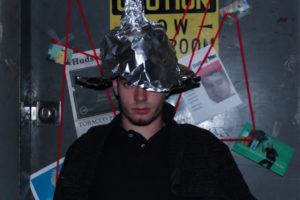WikiLeaks releases Hudson Valley’s secrets
Zoey Deano
Conspiracy Writer

Students and faculty are still recovering from shock after WikiLeaks’ release of sensitive Hudson Valley emails containing the truths behind campus’ conspiracy theories.
McDonough never died, and he helped get Bruno’s charges dropped.
County legislature chairman, Edward McDonough, was charged with corruption after he helped to raise the funds for the McDonough Sports Complex. Over the course of 15 years, McDonough made roughly $640,000 in an insurance kickback scheme. He was sentenced to 51 months in prison, but was later released because of failing health.
McDonough was reported to have died in 2010 at the age of 79, however information received from the Wikileaks would suggest otherwise. An email from Joseph Bruno to McDonough was discovered, dated December of 2011.
Joseph Bruno was a prominent member of the New York State Senate and Hudson Valley donor until he was convicted of two counts of mail and wire fraud. He was acquitted, however as a result of the scandal he was forced into retirement.
The email reveals Bruno gave McDonough $100,000 to make his felony charges disappear. McDonough was able to pull enough strings to get the charges dropped but did nothing to save Bruno’s reputation which angered Bruno.
Communications became heated until threats were being exchanged. McDonough faked his death and moved to Cuba with a new identity and new hopes for a political career.
Hudson Valley’s faulty technology is a social experiment.
Although Hudson Valley, typically, only receives money from the state government, last year it received additional money from the federal government to conduct a social experiment.
The CIA was looking to gather information on how humans respond and adapt to unsatisfactory experiences with technology. Hudson Valley is being paid to use blackboard in addition to keeping the wifi slow.
The experiment is scheduled to run for three more years, though emails reveal that CIA officials aren’t happy about the results.
“While the subjects show an eagerness to use different teaching methods and websites, they still have little patience for the slow wifi,” said project supervisor, John Carr in an email.
According to Carr’s leaked communications, there have been numerous outbursts of frustration from students who procrastinated on completing homework and had the wifi buffer on them.
“They aren’t learning from their past mistakes—to manage time better, if they don’t do that then the experiment will be a failure,” said Carr.
The Mortuary Science Program is dumping ashes on campus and killing the grass.
The island of grass between the Campus Center and Administration Building is often barren despite the administration’s attempts to replant it. This is often attributed to the island’s popularity as a touch football field.
According to leaked documents, the Mortuary Science program’s former disaccreditation was due having been caught dumping the ashes of corpses on school property. In spring of 2016, the program stopped cremating bodies long enough to become re-accredited only to fall back into their habits.
Engineering science major Ling Choo said he was on campus one night and witnessed the ashes being dumped as he exited the campus center.
“I kind of thought I was seeing a cultic ceremony, but the premise was ludicrous to even think until the wind picked up and I got a faceful of ash,” said Choo. “Then knew it was some sort of a cultish behavior.”
An email leaked from the head of the Mortuary Science program explains the reasoning behind the cremation and the dumping of the ashes.
It read, “The mortuary science program attracts a particular crowd of students and every so often we have problems. Those problems require cadaver disposal. Getting rid of a corpse with friends is a bonding experience like no other, and we want to encourage human interaction between our student.”
“Transportation is difficult for a lot of students, so for their convenience, we do it on campus,” wrote the head of the mortuary science program.
The leaks led to some discussion about whether the mortuary science department should be disaccredited again.
